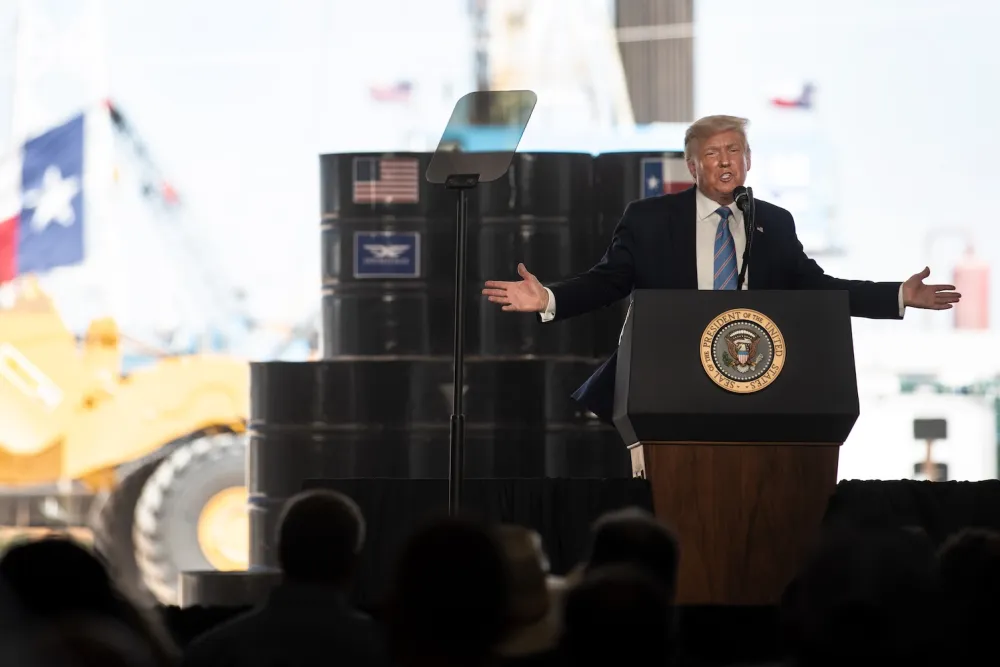
作者/Author(s): Jason Bordoff
網站來源/Source: Foreign Policy
日期/Date: 07/03/2025
關鍵字/Keywords: 能源、能源安全、石油
摘要:
在美國轟炸伊朗核設施後,各國擔憂國際油價將飆升,但這並沒有發生。然而,在伊朗對美軍駐卡達基地發動報復攻擊之前,川普公開呼籲產油國增產以壓低油價。雖然美國政策制定者已意識到戰爭對油價帶來的政治與經濟影響,川普的謹慎態度卻與他在2020年所宣稱美國已達成能源自主,且成為全球最大產油國的言論互相矛盾。
- 儘管近期油價一度下跌且川普承諾將加大國內頁岩油產量,但美國頁岩油業者警告說,頁岩熱潮可能很快就結束。而且油價在伊朗衝突期間飆升,但在停火後回到戰前水平。
- 美國在過去 20 年來一直是石油淨出口國。美國政策制定者和專家認為,美國已經實現了能源獨立,不再需要擔心中東局勢或其他與石油相關的地緣政治事件。
- 頁岩油熱潮為美國帶來經濟與地緣政治利益,同時在衝突期間有效緩衝油價。然而,美國遠未實現能源獨立。
- 即使美國是淨出口國,但石油與汽油的價格仍由國際市場決定。
- 此外,為穩定全球油價,美國在俄烏戰爭期間大量釋出戰略石油儲備。一旦戰略儲備耗盡,美國就少了一個緩解油價飆升衝擊的經濟工具。
- 美國頁岩油產量已達高峰,甚至可能逐漸走下坡。自川普第二任期開始,大多數美國石油公司便開始計劃減少鑽井。
- 雖然美國淨出口國的地位可緩解油價上漲的負面影響,但消費者與企業仍有壓力,這也是為何川普宣稱美國達成能源自主後,仍要求全球產油國維持價格穩定的原因。
- 只要油價仍受全球市場驅動,真正的能源安全就不是增加石油產量,而是降低用量。然而,美國近期的貨幣政策顯示,他們正背道而馳。為因應下一場危機,美國必須減少對石油的依賴,無論其來源為何。
Summary:
Worries about skyrocketing oil prices after the U.S. bombed Iran's nuclear facilities did not occur. However, Trump publicly asked oil producers to increase production and keep the prices down before Iran retaliated against U.S. bases in Qatar. Although U.S. policymakers acknowledged the political and economic implications of the war on oil prices, Trump's caution was paradoxical to his assertion that the U.S. had attained energy independence in 2020 and had become the world's largest oil producer.
- Despite oil prices recently dropping a low and Trump's vowing to ramp up domestic shale production, U.S. producers warned that the shale boom may end soon. Oil prices spiked during the conflict in Iran but returned to pre-war levels after a ceasefire.
- The U.S. has been a net oil exporter for 20 years. U.S. policymakers and experts believed that the U.S. had attained energy independence and no longer needed to worry about the situation in the Middle East or other oil-related geopolitical events.
- The shale boom endowed the U.S. with economic and geopolitical boons while buffering oil prices during conflicts. However, the U.S. is far from energy independence.
- Despite its status as a net exporter, the global market still sets the prices of oil and gasoline.
- Furthermore, the U.S. has to sell off much of its strategic oil reserves to keep global oil prices stable during the Ukrainian conflict. Once the U.S. strategic reserves deplete, it has one less cushion to mitigate economic pain from spiking oil prices.
- The U.S. shale production is peaking and may start to decline. Most U.S. oil companies plan to drill fewer wells since the beginning of Trump's second term.
- Being a net oil exporter could soften the negative impacts of oil price spikes. However, consumers and businesses can still feel the effects, which is why Trump contradicted his claims of oil independence and asked global oil producers to keep prices stable.
- As long as global market forces drive oil prices, true energy only comes from using less oil, not just producing more. However, recent monetary policies suggest the U.S. is moving in the opposite direction. To prepare itself against the next crisis, the U.S. must reduce its dependence on oil, regardless of its source.
